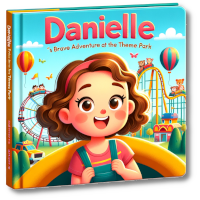Reading with children
a blog by Magic Tales

Nurturing Seeds of Honesty: Parents, Guardians, and the Storybook Approach
Instilling the virtue of honesty in children is both a massive responsibility and a critical life lesson. It's a trait that lays the groundwork for trust, integrity, and responsibility. While various influences like schools and peers play a significant part, the cornerstone role in fostering honesty lies primarily with parents and guardians. How can they better accomplish this goal? The answer may be simpler than you think, taught through the enchanting world of children's literature.
Setting the Stage for Honesty through Storybooks
Storybooks and reading with children provide the opportunity to embed core values subtly. Parents and guardians can cleverly utilize stories to illustrate honesty's significance. Stories have a unique way of demonstrating concepts that directly telling might not necessarily get across.
Classic and Contemporary Takes on Honesty
Surely, generations-old fables and tales, such as 'The Boy Who Cried Wolf,' have illustrated the repercussions of dishonesty. In addition to these classics, there are numerous contemporary books that talk about honesty in context that today’s children can better comprehend. 'Ruthie and the (Not So) Teeny Tiny Lie' and 'Lying Up a Storm' are just a couple of examples that beautifully demonstrate how one lie can spiral out of control and affect the relationships around us.
Role-Modeling through Characters
Parents and guardians have a golden opportunity here to teach honesty through the character’s experiences. Children relate to characters in the book, empathize with their situations, and celebrate their victories. They observe how characters handle tough situations, the struggles with dishonesty, and the peace that honesty eventually brings.
Igniting Conversations about Honesty
After-story discussions are moments that can create an impact beyond the reading session. Emphasising on the characters’ emotional journey when they chose honesty over deceit allows children to understand honesty's emotional implications. Questions like 'How do you think the character felt when they were dishonest?' or 'What would you do in their place?' make the child reflect and give them a safe space to share their thoughts.
Setting the Example
No book, however, can completely instill honesty if parents are not practising it themselves. Children, as great observers, learn a lot from the adults around them. When parents model honesty, children are more likely to follow suit.
Children’s literature is more than just a tool to foster imagination and language development. Amidst magical kingdoms and talking animals, important life lessons are subtly conveyed. But the role of parents and guardians in utilizing these books to promote honesty is paramount. They set the stage, control the spotlight, and most importantly, they become the first audience, encouraging a truthful encore.
Want a personalized book to read with your child about Honesty?
Takes as quickly as 30 seconds to create
Create a book about Honesty

